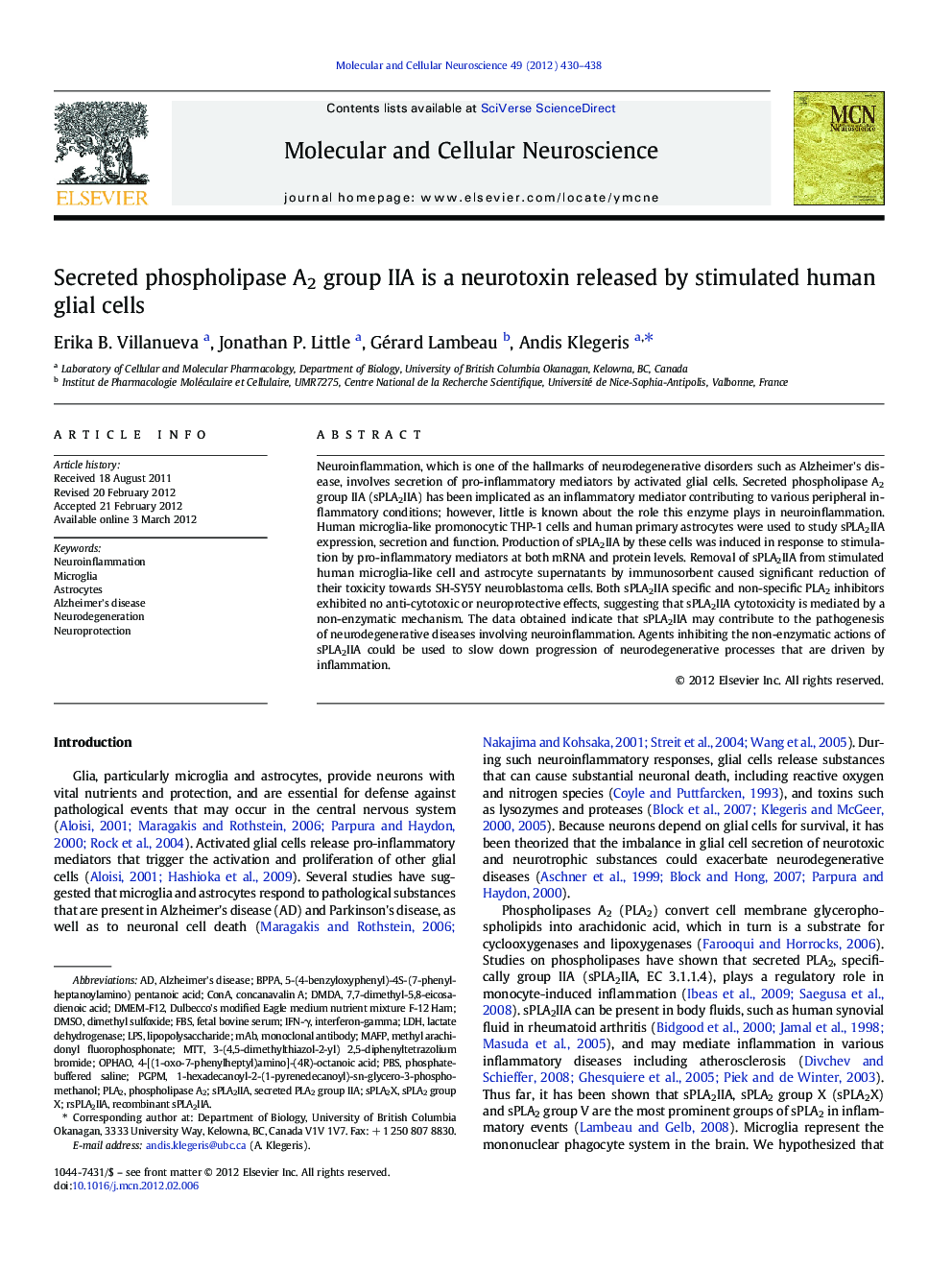| Article ID | Journal | Published Year | Pages | File Type |
|---|---|---|---|---|
| 10956532 | Molecular and Cellular Neuroscience | 2012 | 9 Pages |
Abstract
Neuroinflammation, which is one of the hallmarks of neurodegenerative disorders such as Alzheimer's disease, involves secretion of pro-inflammatory mediators by activated glial cells. Secreted phospholipase A2 group IIA (sPLA2IIA) has been implicated as an inflammatory mediator contributing to various peripheral inflammatory conditions; however, little is known about the role this enzyme plays in neuroinflammation. Human microglia-like promonocytic THP-1 cells and human primary astrocytes were used to study sPLA2IIA expression, secretion and function. Production of sPLA2IIA by these cells was induced in response to stimulation by pro-inflammatory mediators at both mRNA and protein levels. Removal of sPLA2IIA from stimulated human microglia-like cell and astrocyte supernatants by immunosorbent caused significant reduction of their toxicity towards SH-SY5Y neuroblastoma cells. Both sPLA2IIA specific and non-specific PLA2 inhibitors exhibited no anti-cytotoxic or neuroprotective effects, suggesting that sPLA2IIA cytotoxicity is mediated by a non-enzymatic mechanism. The data obtained indicate that sPLA2IIA may contribute to the pathogenesis of neurodegenerative diseases involving neuroinflammation. Agents inhibiting the non-enzymatic actions of sPLA2IIA could be used to slow down progression of neurodegenerative processes that are driven by inflammation.
Keywords
MAFPPBSLPSConAmAbFBSPLA2IFN-γConcanavalin ADMEM-F12DMSOMTTAstrocytesMonoclonal antibodyphospholipase A2Neuroinflammationinterferon-gammaAlzheimer's diseaseNeurodegenerationDimethyl sulfoxidefetal bovine serumlactate dehydrogenaseLDHlipopolysaccharidemethyl arachidonyl fluorophosphonateNeuroprotectionPhosphate-buffered salineMicroglia
Related Topics
Life Sciences
Biochemistry, Genetics and Molecular Biology
Cell Biology
Authors
Erika B. Villanueva, Jonathan P. Little, Gérard Lambeau, Andis Klegeris,
